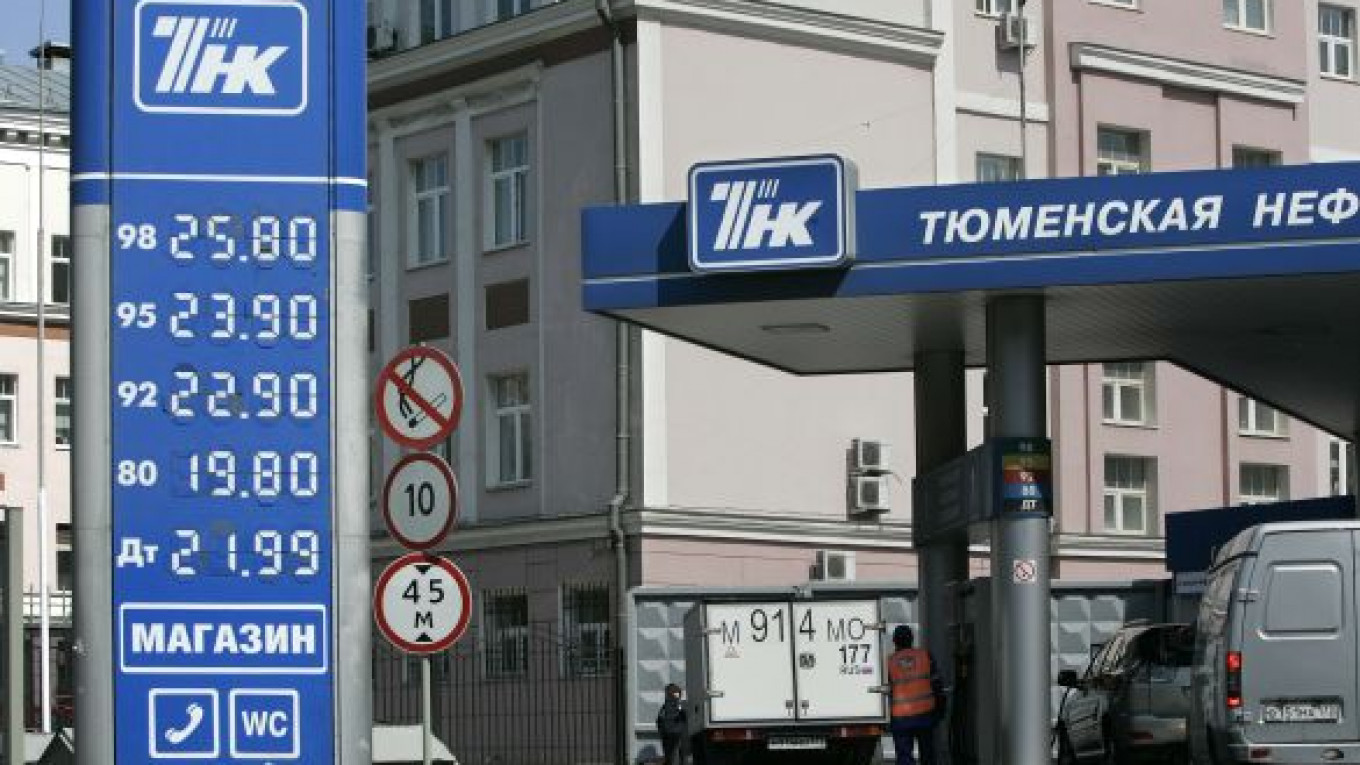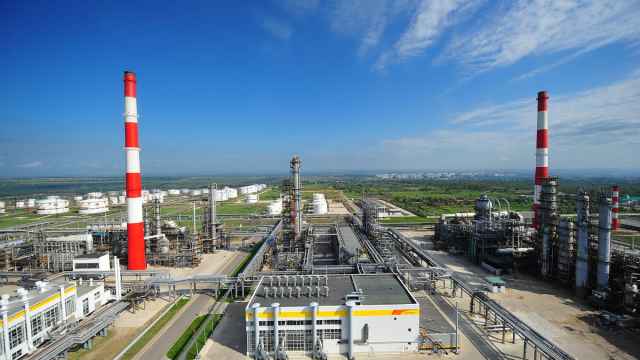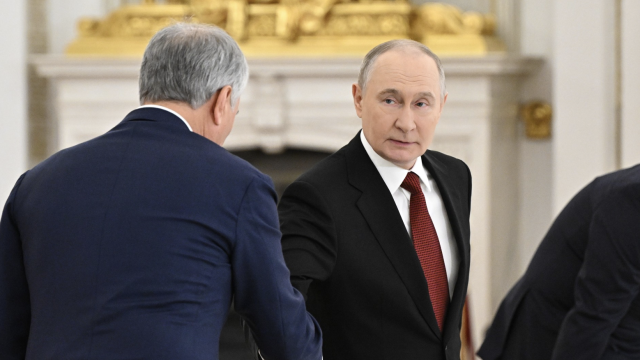TNK-BP hit back at political criticism of its environmental record Friday as analysts warned that questions raised by ministers about the oil company’s focus on a high-dividend policy could push its share price lower.
The country’s third-largest crude producer experienced 784 accidents last year compared to a maximum of 28 for its Russian peers, Natural Resources and Environment Minister Yury Trutnev said Thursday during a government meeting with Prime Minister Vladimir Putin.
Energy Minister Sergei Shmatko suggested that TNK-BP’s generous dividend policy could be cut back to free up capital for investment in pollution prevention.
In a statement Friday, TNK-BP thanked Trutnev for “his attention” but said it had reduced the amount of oil spilled by 60 percent year on year in 2011.
“In terms of environmental activities, TNK-BP has been one of the most proactive of all the Russian companies,” said a source close to the oil group, who also expressed bafflement at Trutnev’s assertion that other major companies have less than 30 annual accidents.
“It’s very confusing for us where he [Trutnev] pulled those numbers for the other companies from,” the source said. “They seem very shockingly low.”
The spat between the officials and TNK-BP centers on pollution at the aging oil fields in the Khanty-Mansiisk autonomous region, particularly the giant Samotlor, and pipelines that leak crude into tundra ecosystems and waterways.
Greenpeace estimates that 5 million tons of oil and oil products leak from Russian pipes every year — a quantity equivalent to seven disasters on the scale of BP’s 2010 Deepwater Horizon accident in the Gulf of Mexico.
TNK-BP said it recorded 1,186 pipeline leaks at all its fields in 2011 compared to 1,315 in 2010. The country’s biggest producer of crude, Rosneft, recorded 7,817 pipeline ruptures leading to spills in 2010, according to its annual sustainability report.
Investors appeared shocked after the government’s criticism and worried about implied pressure to reduce dividends.
TNK-BP’s shares lost 4.5 percent Thursday and 1.2 percent Friday in MICEX trading. The MICEX Index as a whole was up 1.89 percent and 0.6 percent, respectively, Thursday and Friday.
Analysts from Citibank said the threat to large dividends — which are one of TNK-BP’s principal attractions for investors — should “not be taken lightly.”
“The key fear,” analysts at Troika Dialog said, “is that the company would be forced to change its generous payouts and, worse, invest in projects with low returns.”
TNK-BP’s dividends have traditionally enjoyed a 55 percent payout ratio: A rate closer to international energy companies than Russian crude producers. The dividend for 2011 is set to be confirmed in May.
TNK-BP, which is jointly owned by BP and a consortium of Russian billionaires represented by Alfa, Access and Renova Group, has a history of fractious shareholder conflict and difficulties with the Kremlin.
“Political investment risks in Russia have not gone to sleep after the election like many had hoped,” Investcafe’s Grigory Birg said.
A Message from The Moscow Times:
Dear readers,
We are facing unprecedented challenges. Russia's Prosecutor General's Office has designated The Moscow Times as an "undesirable" organization, criminalizing our work and putting our staff at risk of prosecution. This follows our earlier unjust labeling as a "foreign agent."
These actions are direct attempts to silence independent journalism in Russia. The authorities claim our work "discredits the decisions of the Russian leadership." We see things differently: we strive to provide accurate, unbiased reporting on Russia.
We, the journalists of The Moscow Times, refuse to be silenced. But to continue our work, we need your help.
Your support, no matter how small, makes a world of difference. If you can, please support us monthly starting from just $2. It's quick to set up, and every contribution makes a significant impact.
By supporting The Moscow Times, you're defending open, independent journalism in the face of repression. Thank you for standing with us.
Remind me later.







